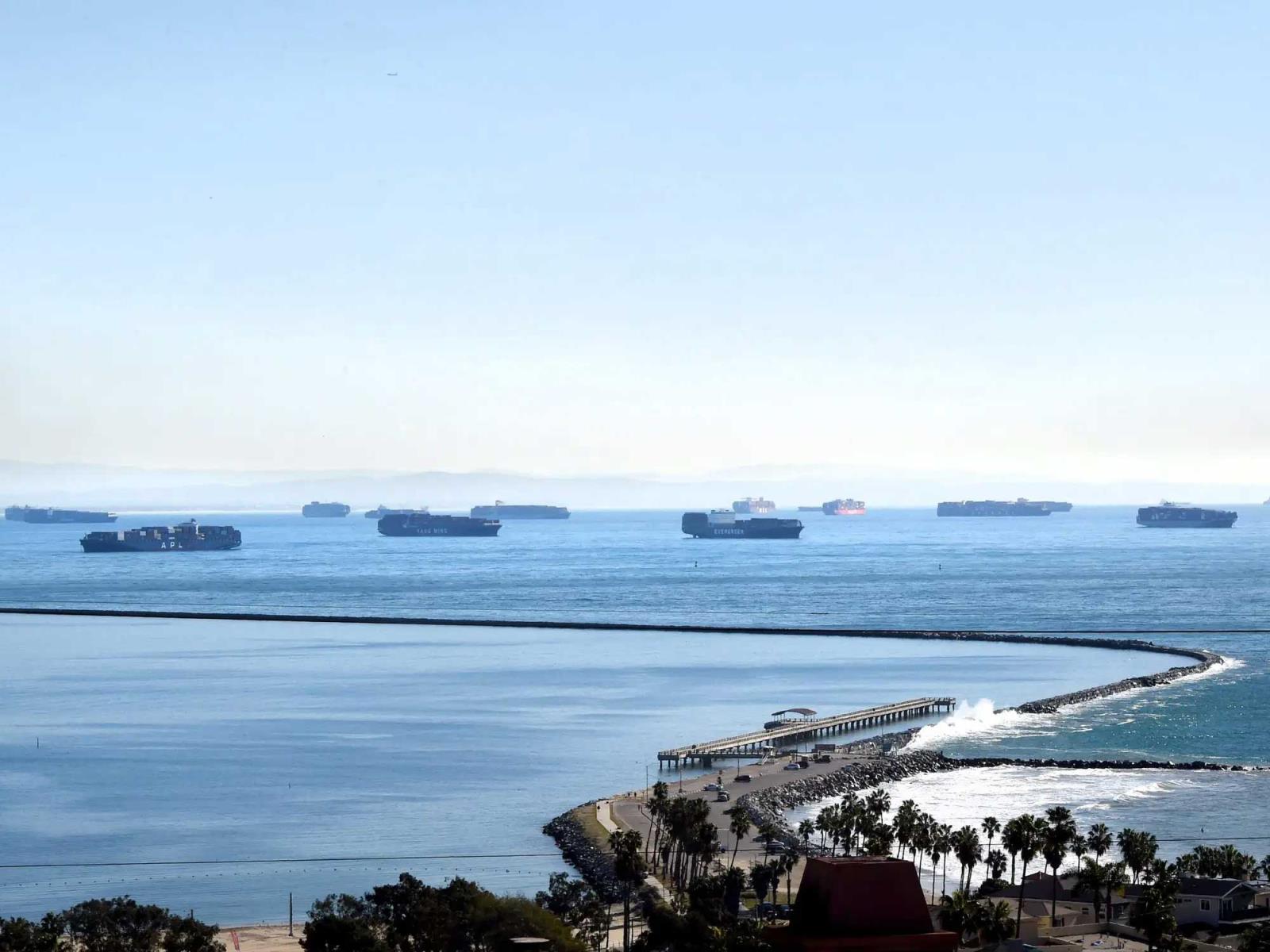
Freight ships sitting off the coast of California in January. US ports have experienced some of the worst bottlenecks in more than a decade throughout the COVID-19 pandemic.
* Forty-four container ships are stuck outside California ports, worsening shipping delays and costs.
* This tops the previous pandemic record, set in February, of 40 ships.
* The ports account for about one-third of US imports, serving as a main source of trade with China.
Forty-four freight ships are stuck awaiting entry into California's two largest ports, the highest number recorded since the beginning of the COVID-19 pandemic, the Marine Exchange of Southern California reported on Saturday.
The queue is a result of the labor shortage, COVID-19-related disruptions, and holiday-buying surges. Port of Los Angeles data indicated that the ships' average wait time had increased to 7.6 days.
"The normal number of container ships at anchor is between zero and one," Kip Louttit, the executive director of the Marine Exchange of Southern California, told Insider in July.
California ports in Los Angeles and Long Beach account for about one-third of US imports. These ports operate as a primary source of imports from China and have experienced heavy congestion throughout the pandemic.
"Part of the problem is the ships are double or triple the size of the ships we were seeing 10 or 15 years ago," Louttit said. "They take longer to unload. You need more trucks, more trains, more warehouses to put the cargo."
Read more: The Suez Canal won't be the last supply-chain fail. Here are 4 things your small business can do to benefit from the next one.
While the container ships are forced to anchor and await berth space, companies importing and exporting goods to and from Asia expect additional shipping delays.
This comes during one of the busiest months for US-China trade relations, as retailers buy ahead in anticipation of US holidays and China's Golden Week in October, Bloomberg reported.
"To give you a real-life example of the kinds of challenges we're seeing, one of our dedicated charters was recently denied entry into China because a crew member tested positive for COVID, forcing the vessel to return to Indonesia and change the entire crew before continuing," Michael Witynski, Dollar Tree's CEO, said on a Thursday earnings call. "Overall, the voyage was delayed by two months."
Witynski added that a freight forwarder in San Francisco said in a recent transportation webinar that "the transit times from Shanghai to Chicago had more than doubled to 73 days from 35 days." Another carrier executive estimated "that voyages are now taking 30 days longer than in previous years due to port congestion, container handling delays, and other factors," Insider's áine Cain reported.
"Industry experts expect the ocean shipping capacity will normalize no later than 2023, when many new ships come online," Witynski said.
"Despite record levels of ships in port and at anchor and in drift areas, the Marine Transportation System in LA and LB remains safe, secure, reliable, and environmentally sound, while not being as efficient as it should be due to COVID protocols in these uncertain and unsettled times, and record levels of cargo," the Marine Exchange of Southern California wrote in a statement.
Comment from exportise:
Changes in consumption and shopping patterns triggered by the pandemic have led to increased import demand for manufactured consumer goods. The increase in demand was stronger than expected and not met with a sufficient supply. Product categories will have changes too, and most of them will be permanent. Time to think about rolling out strategic/new products to get more market share.
Warehouse space is now available in the U.S. since imports basically were halted for the past months. It is a good time for sellers to take advantage of the low rates in storage to compensate for increased costs in shipping charges and waiting times.
Source from: businessinsider.com